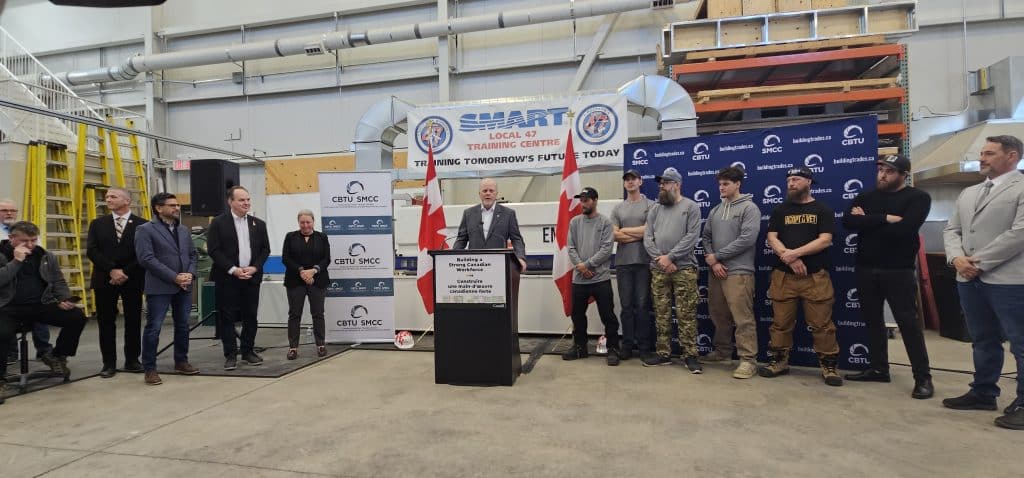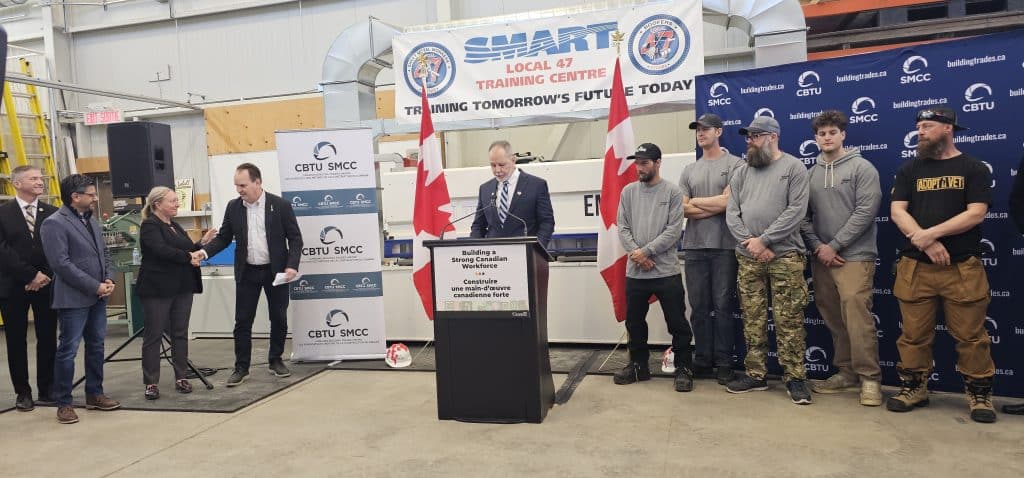On March 18, 2025, Steven MacKinnon, minister of Jobs and Families in Canada, visited the SMART Local 47 (Ottawa, Ontario) training centre to announce $67 million in funding for unions to enhance training, aimed at ensuring skilled trades workers lead the transition to the clean economy of the future. The funding, awarded through the Union Training and Innovation Program (UTIP) Sustainable Jobs Stream, included a possible $8.9 million for SMART.
“We’re thrilled that the government has awarded this project to SMART,” said Jack Wall, SMART director of Canadian affairs. “This funding will go a long way to significantly improving the quality of the training our members receive and will help more than 2,000 of our members upgrade their skills, and build a new permanent resource for every apprentice and journey-worker in our trade.”



SMART Canada has been working for years to make sure Canada’s green future is built union. Since the Canadian government announced its ambitious goal to achieve net-zero carbon emissions by 2050, SMART has worked to promote strong labour standards in federal policy, secure funding for training programs such as Canada’s Building Trades Unions’ “Building It Green” initiative, promote the union sheet metal and roofing trades as pathways to good jobs, and more.
Partnering with CBTU and SkillPlan Canada to help secure financial assistance for new training is the next step in that process. Overall, the funding announced by MacKinnon in March will go to 10 union-led projects across Canada, training nearly 29,300 tradespeople with the skills they’ll need to build Canada’s new clean economy. The Local 47 training centre was one of the beneficiaries of that funding; CBTU and SMART also received funding to develop a national online training curriculum, empowering sheet metal workers nationwide to access always-available training to develop crucial skills for clean energy work.
“This is an exciting day for our organization,” Wall concluded. “This will be a team effort to help redevelop some of our curriculum and help train our members to be better prepared for green projects — and to pass those skills on to future generations.”
Related News
- Special Focus: SMART leaders fight for what matters — the members — at 2025 Leadership Conference
- Power in solidarity
- Fighting for what’s right
- What it means to be in SMART-TD
- Canadian Affairs Report: Committed to progress
- Committees meet to strengthen SMART, benefit members
- Member profile: Brother Bill Link retires after blazing trails on the rails
- GP Coleman discusses California high-speed rail project in video for members
- Naloxone cabinets available to SMART locals via SMOHIT
- General President Coleman, SMACNA President Martin host BE4ALL Town Hall in Cleveland